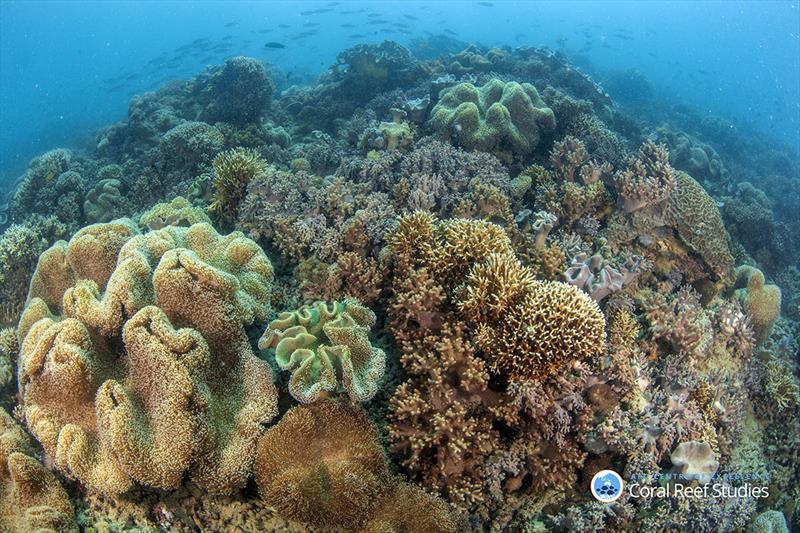
Great Barrier Reef island coral decline
by Melissa Lyne 27 Oct 2019 07:54 UTC

Vibrant and healthy coral reef scene in the Whitsunday Islands. Coral reefs have an amazing capacity to recover when conditions are right © David Wachenfeld, Triggerfish Images
A long-term study of coral cover on island groups of the Great Barrier Reef has found declines of between 40 and 50 percent of live, hard corals at inshore island groups during the past few decades.
Scientists from the ARC Centre of Excellence for Coral Reef Studies at James Cook University (Coral CoE at JCU) say the data was so alarming that they checked and re-checked it.
The study's lead author Dr Daniela Ceccarelli and a team of researchers surveyed coral cover on fringing reefs of the Palm, Magnetic, Whitsunday and Keppel Island groups along the central and southern Great Barrier Reef, and compared it to historical records.
"Normal cycles of disturbance and recovery are natural, and the reef historically has had good recovery potential," Dr Ceccarelli said.
"But human impacts are increasing the frequency of disturbances such as coral bleaching, leaving little time between events to allow a full recovery," she said.
"We were shocked when we calculated the changes."
JCU researchers have monitored the condition and trends of inshore reefs in the Great Barrier Reef Marine Park (GBRMP) since the late 1990s.
Co-author Dr David Williamson, also from Coral CoE at JCU, said: "The impacts of individual disturbance events were patchy. Some reefs avoided the worst effects—but the cumulative impacts of multiple, frequent events reduced coral cover and diversity."
Dr Ceccarelli said their latest expedition identified several factors that influenced coral cover on reefs at each island group, but two key drivers consistently stood out for all reefs: temperature stress from marine heatwaves and wave exposure.
"There was a clear threshold of heat stress above which coral cover consistently declined. We were surprised to find that corals on these inshore reefs appear to have a lower heat stress threshold than previously reported," she said.
Dr Williamson said the effect of wave exposure was more complicated.
"The corals on the exposed, outer sides of the island had an advantage," he said. "This is because they were well-flushed by currents."
"This information can test management actions that aim to maintain natural biodiversity and ecological processes."
"If we can tackle water quality locally and climate change globally, then there is hope," Dr Ceccarelli said.
Paper: Ceccarelli D, Evans R, Logan M, Mantel P, Puotinen M, Petus C, Russ G, Williamson D. (2019). Ecological Applications. 'Long-term dynamics and drivers of coral and macroalgal cover on inshore reefs of the Great Barrier Reef Marine Park'. DOI: doi.org/10.1002/eap.2008.